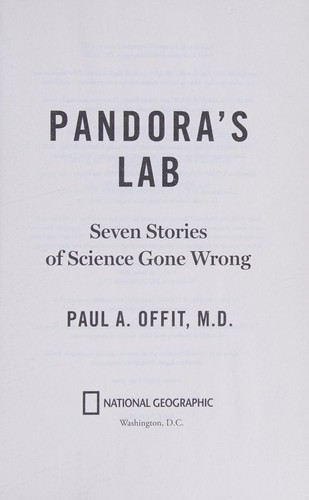287 páginas
Idioma English
Publicado el 2017 por National Geographic.

287 páginas
Idioma English
Publicado el 2017 por National Geographic.
What happens when ideas presented as science lead us in the wrong direction? History is filled with brilliant ideas that gave rise to disaster, and this book explores some of these missteps: from opium's heyday as the pain reliever of choice to recognition of opioids as a major cause of death in the U.S.; from the rise of trans fats as the golden ingredient for tastier, cheaper food to the heart disease epidemic that followed; and from the cries to ban DDT for the sake of the environment to an epidemic-level rise in world malaria. These are today's sins of science -- as deplorable as mistaken past ideas about advocating racial purity or using lobotomies as a cure for mental illness. These unwitting errors add up to seven lessons both cautionary and profound, narrated by author and speaker Paul A. Offit. Offit uses these lessons to investigate how we can …
What happens when ideas presented as science lead us in the wrong direction? History is filled with brilliant ideas that gave rise to disaster, and this book explores some of these missteps: from opium's heyday as the pain reliever of choice to recognition of opioids as a major cause of death in the U.S.; from the rise of trans fats as the golden ingredient for tastier, cheaper food to the heart disease epidemic that followed; and from the cries to ban DDT for the sake of the environment to an epidemic-level rise in world malaria. These are today's sins of science -- as deplorable as mistaken past ideas about advocating racial purity or using lobotomies as a cure for mental illness. These unwitting errors add up to seven lessons both cautionary and profound, narrated by author and speaker Paul A. Offit. Offit uses these lessons to investigate how we can separate good science from bad, using some of today's most controversial creations -- e-cigarettes, GMOs, drug treatments for ADHD -- as case studies. For every "Aha!" moment that should have been an "Oh no," this book is an account of how science has been misused disastrously -- and how we can learn to use its power for good.